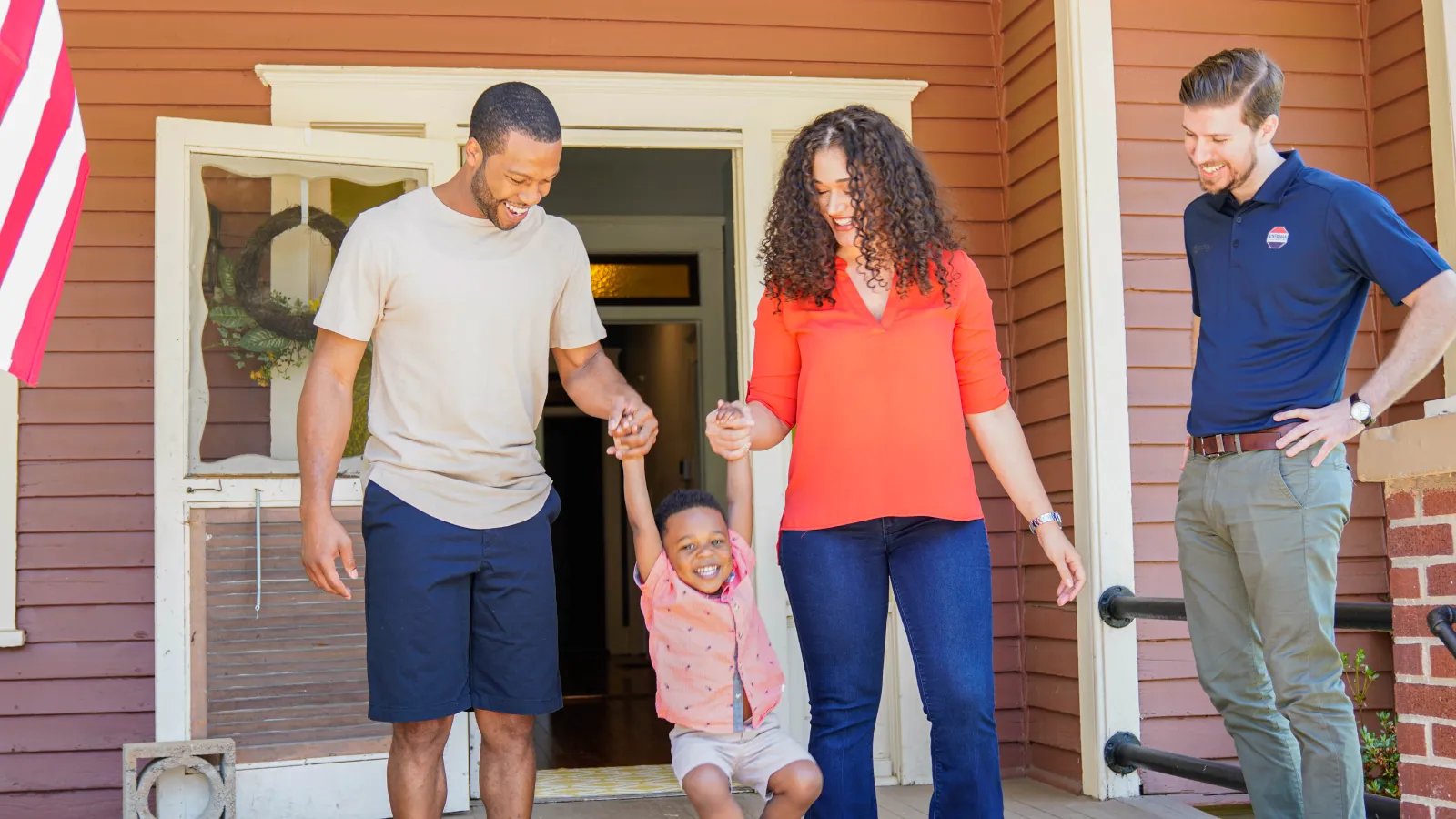The National Association of REALTORS® reports that the median home price in the United States reached $403,800 in July 2022. If you're going to spend hundreds of thousands of dollars, it's important to find out if the home you want to buy is structurally sound and free of major defects.
Keep reading to learn more about the home inspection tests you likely need to protect your investment and avoid costly repairs down the road:
- Licensed home inspection
- Lead-based paint inspection
- Asbestos inspection
- Wood rot and mold inspection
- Sewer scope
For more than 40 years, Ackerman Security has kept Atlanta homeowners protected against home invasions, property damage, fires, CO2 poisoning, and more. To learn about our comprehensive home security systems and 24/7 monitoring services, call us at 800.552.1111 or get a free instant quote online today.
Licensed Home Inspection
Out of all the home inspection tests you likely need, the licensed home inspection is the most important.
Home inspectors look for problems with plumbing, electrical, heating and air conditioning systems, check for structural problems, and examine roof and attic insulation. They also inspect basement, walls, ceilings and floors. After completing an inspection, the inspector prepares a report documenting their observations and makes recommendations regarding repairs.
If the inspector uncovers structural defects or other serious hazards, you can walk away from the sale instead of spending your hard-earned money on an unsafe home. You can also use the inspection report as a negotiating tool.
If you plan to borrow money to buy a home, your lender will require an inspection to make sure there aren't any issues that could affect the value of the home. This protects the lender's investment and ensures that you have a safe place to live. Another way to enhance your safety is to ensure your new home has working smoke detectors. Ackerman Security offers 24/7 monitoring to protect your family and your property.
Lead-Based Paint Inspection
Older homes often have lead-based paint, which is a serious safety concern for humans. If a pet or young child chews on window sills, door frames or other types of trim, they may ingest paint flakes, increasing the risk for lead poisoning. It's also possible for lead-based paint to flake off during home renovations. Lead-based paint inspection is one of the home inspection tests you likely need to protect your family's safety.
During this type of inspection, an inspector assesses the home to determine if there are any surfaces containing lead-based paint. By law, an inspector must be certified to perform a lead-based paint inspection in a residential or commercial building. If the home does have lead-based paint, you can work with a certified assessor to determine if the lead hazard should be managed or eliminated.
Asbestos Inspection
Asbestos is a mineral fiber that has been used to make a variety of building materials, including asphalt floor tile, cement pipes, vinyl floor tile, pipe insulation and ceiling tiles. It's generally not dangerous unless it's damaged or disturbed in some way. For example, if you buy a home and decide to renovate, you may disturb asbestos fibers found in floor tiles or ceiling tiles.
Exposure to asbestos has been linked to serious lung problems such as mesothelioma, a type of cancer that affects the lining of the heart, abdomen, lungs and chest. That's why an asbestos inspection is one of the most important home inspection tests you likely need before or immediately after you buy a home.
During an asbestos inspection, the inspector performs a thorough visual assessment of the property. They may also take samples from the home that can be tested in a laboratory to determine if asbestos is present. Once the lab tests are complete, the inspector makes recommendations regarding asbestos removal and disposal.
Wood Rot and Mold Inspection
If the home you want to buy has any damp areas, such as crawl spaces, add a wood rot and mold inspection to the list of home inspection tests you likely need. Both problems are caused by fungus, but they have different effects. Wood rot is concerning because it causes wood to break down, damaging the structural integrity of wooden beams, joists and supports. Mold doesn't cause wood to disintegrate, but it does have serious health effects. Exposure to mold may cause coughing, wheezing, headaches, difficulty breathing and other symptoms. Some mold species even produce mycotoxins, which are associated with severe illness.
When you purchase a wood rot inspection, the inspector conducts a visual assessment of the wood surfaces in the home. They're looking for areas that are sunken in or discolored, which are both potential signs of wood rot. The inspector may also use a knife or other sharp object to check for soft spots in wooden surfaces.
During a mold inspection, the inspector starts by performing a visual assessment of the home. This makes it easier to detect leaks, standing water and signs of existing mold growth. Next, the inspector checks the areas of the home that are most likely to have mold in them: window sills, wall cavities, fireplaces, walls, chimneys, crawl spaces, vents and air ducts. Your inspector may also take outdoor samples and use them to determine what type of mold tends to grow in the area. Any samples collected by the inspector will be analyzed in a lab to identify them and determine the best way to remove them from the home.
Sewer Scope
You don't want to purchase a home and then discover a major problem with the sewer just a few months later. A sewer scope inspection helps you avoid that scenario. During a sewer scope inspection, the inspector puts a flexible camera into the main drainpipe and uses it to check the sewer lines. They're looking for cracks, clogs, tree roots and other issues that could prevent the sewer from working properly.
It's especially important to get this type of inspection if the home has mold issues, if there are any sinkholes in the area or if there's been recent flooding around the home.
Let Ackerman Security Protect Your New Home.
Once you purchase a home, it's important to protect your investment. For more than 40 years, Ackerman Security has been providing expert security advice to residents of the Atlanta area. Call us at (800) 552-1111 to request a quote from one of our trusted home security professionals.






